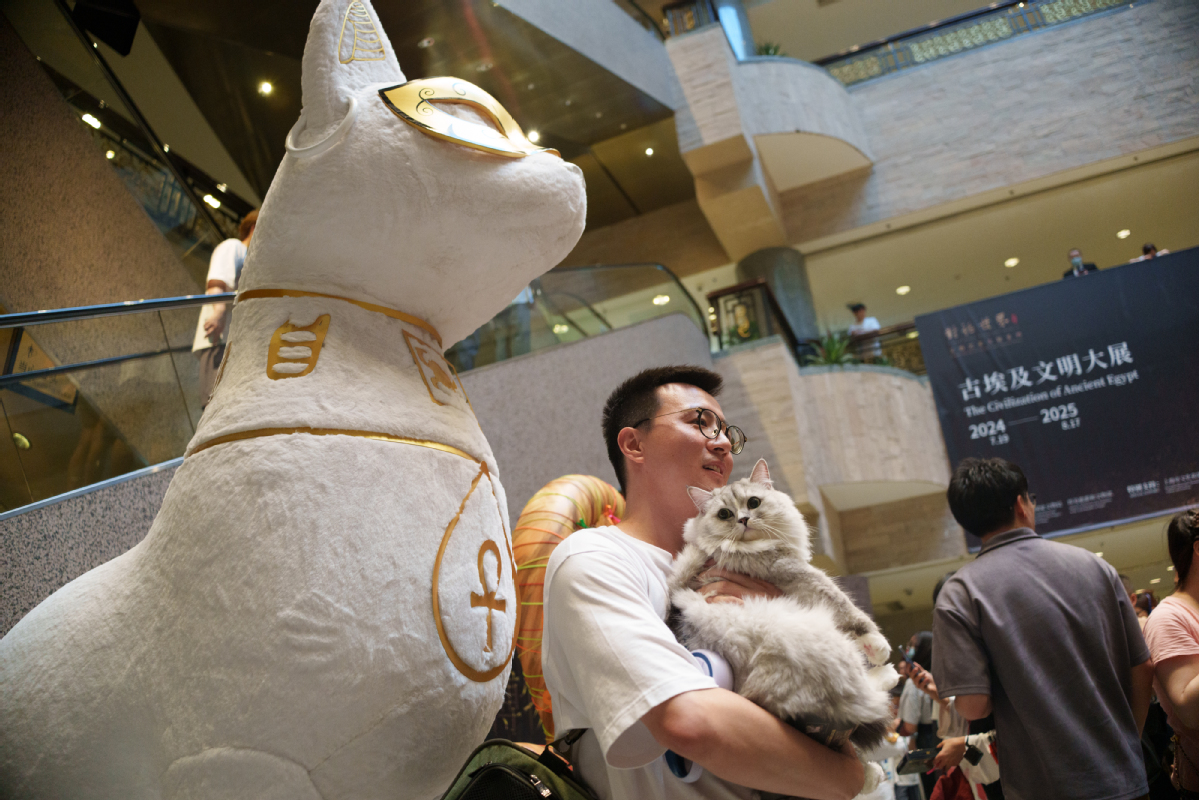Wanderlust for pet travel unleashes market potential
Tourism operators profit from owners' desire to take furry companions on holidays


Room at the inn
From day trips in suburban areas of Beijing to weeklong journeys to Hebei province and Inner Mongolia, Zhang has arranged about 180 pet trips. Each usually has two to five professional guides for groups of up to 30 owners and their dogs.
"Safety is of the utmost importance, and all the guides have been trained to deal with various emergencies in the mountains," Zhang said. Planning is made for emergency scenarios such as medical problems or dogs going missing.
Before a trip, Zhang's team members ask pet owners to fill in a form on their dog, such as whether it is obedient or if it gets along with other canines.
A hike usually lasts four to five hours and chartered buses are offered, with pet-friendly hotels and restaurants arranged for the tour.
Fun water destinations in Beijing's Changping district, and forest expeditions in Hebei province are among the most popular trips. "We usually organize two to four events a week, and each of them is quickly filled once they become available for bookings," Zhang said.
Hotels that cater to pets were among the first businesses to benefit from the emerging market.
Xiaozhu Inc, a homestay service provider, reported that searches containing the words "pets allowed" during the June Dragon Boat Festival surged 274 percent year-on-year.
Tujia, another homestay booking platform, reported that similar searches quadrupled in the two weeks leading up to the festival, and its amount of usual bookings doubled.
Huamei resort, a 4A-level tourist resort in the Changbai Mountains region in Jilin province, received its first group of tourists with pets during this year's Dragon Boat Festival.
Twenty travelers with 15 pets spent three days at the resort, enjoying activities such as a bonfire party, pillow fights, barbecues and rafting.
Wang Jianlu, a resort staff member, said nearly all the resort operations are now pet-friendly. A business plan to cater to pet owners, including dining, lodging, shopping, and entertainment, has been put in place, he said. In the future, the number of pet-friendly hotel rooms in the resort is expected to total 100.
The resort is also in discussions with the operators of nearby scenic spots and attractions that currently prohibit pets, to explore policies that allow visitors to bring their animals.
Although pet tourism is still a niche market, its products have considerable profit margins, Wang said. "The resort is very optimistic about the development prospects of this market and considers it an important business to develop in the future," he said.
























